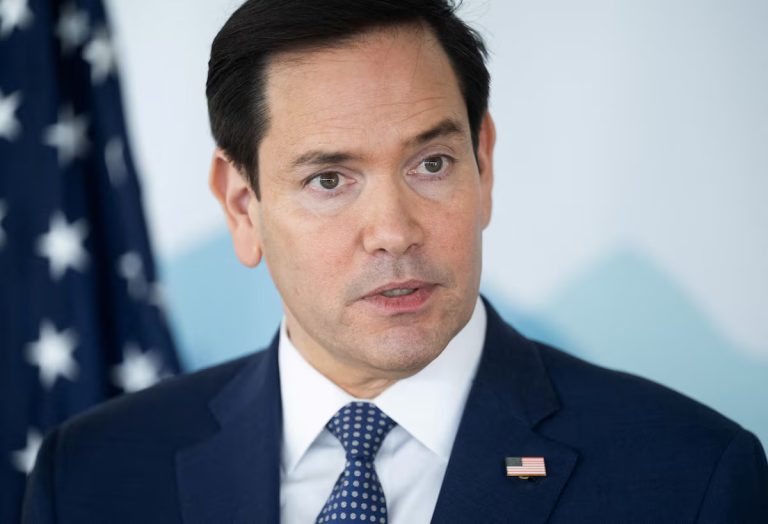U.S. Secretary of State Rubio Leads Diplomatic Push Amid Israel-Iran Conflict
By Hotspotorlando News
In a critical moment for Middle East stability, U.S. Secretary of State Marco Rubio has taken a firm stance in addressing the escalating conflict between Israel and Iran. On Thursday, Rubio engaged in high-level discussions with key international partners, including British Foreign Minister David Lammy, Australian Foreign Minister Penny Wong, French Foreign Minister Jean-Noel Barrot, and Italian Foreign Minister Antonio Tajani. These talks underscore the United States’ commitment to supporting its steadfast ally, Israel, while navigating the delicate balance of preventing a broader regional war.
The conflict, which erupted on June 13 when Israel launched preemptive strikes against Iranian targets, has heightened tensions in an already volatile region. Israel’s actions were driven by credible intelligence suggesting Iran was on the verge of a nuclear breakthrough—an existential threat to the Jewish state and a clear violation of international non-proliferation commitments. Iran, in retaliation, has launched missile barrages, killing at least two dozen Israeli civilians, while Israeli airstrikes have reportedly claimed over 600 lives in Iran, including key nuclear scientists and military personnel.
Rubio’s discussions with his counterparts centered on a unified message: Iran must never be allowed to develop or acquire a nuclear weapon. This resolute position reflects the conservative principle of prioritizing national security and standing unwaveringly with allies like Israel, which faces relentless threats from a regime that openly calls for its destruction. The U.S. State Department emphasized that Rubio and the foreign ministers agreed on the need to counter Iran’s destabilizing ambitions, particularly its nuclear program, which threatens not only Israel but global security.
British Foreign Minister Lammy, speaking on X, described the Middle East situation as “perilous” but noted a narrow “two-week window” for diplomacy to avert further escalation. This timeframe aligns with President Donald Trump’s announcement that he will decide within the same period whether the U.S. will take military action to support Israel. Trump, known for his strong pro-Israel stance, has kept options open, ranging from diplomatic pressure to potential strikes on Iran’s nuclear facilities. His administration has already bolstered Israel’s defense with anti-missile systems, demonstrating America’s ironclad commitment to its ally.
Rubio’s diplomatic outreach signals a proactive approach to rallying international support for Israel while pressuring Iran to abandon its nuclear ambitions. The talks also highlight the importance of maintaining a coalition of like-minded nations to counter Tehran’s aggression, which has long fueled terrorism and instability across the region. Unlike the appeasement policies of past administrations, Rubio’s efforts reflect a conservative vision of strength, clarity, and moral resolve in foreign policy.
As European diplomats prepare to meet with Iran’s foreign minister in Geneva on Friday to push for de-escalation, the U.S. remains clear-eyed about the challenges. Iran’s regime has shown little interest in genuine diplomacy, often using talks as a stalling tactic to advance its nuclear program. Rubio’s engagement with partners underscores the need for vigilance and preparedness, ensuring that any diplomatic efforts are backed by the credible threat of consequences should Iran refuse to comply.
The stakes could not be higher. A nuclear-armed Iran would embolden its proxies, such as Hezbollah and Hamas, and destabilize the Middle East further, threatening not only Israel but also U.S. interests and allies like Saudi Arabia and the UAE. Rubio’s leadership in these discussions reaffirms America’s role as a global power that stands firm against tyranny and supports freedom-loving nations.
As the two-week window unfolds, conservatives will be watching closely to ensure that the U.S. continues to project strength and unwavering support for Israel. Rubio’s diplomatic efforts are a step toward preventing a wider conflict, but they also serve as a reminder that peace through strength remains the cornerstone of American foreign policy. The world is on edge, but with leaders like Rubio at the helm, the U.S. is well-positioned to confront the challenges posed by Iran’s belligerence and secure a safer future for its allies and the free world.
source: Reuters,AP, X-Ai


